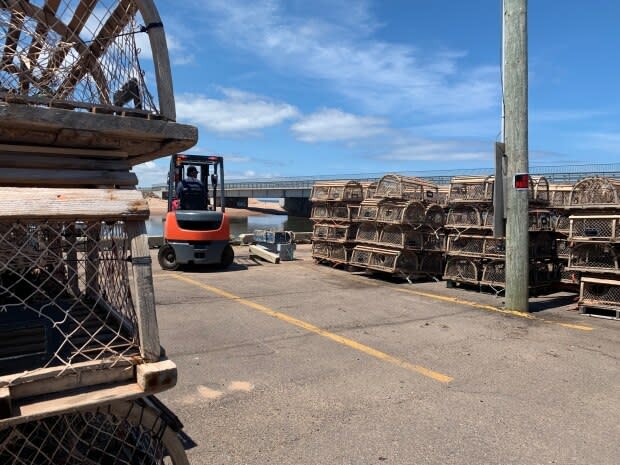Tough spring lobster season on P.E.I. comes to an end
The spring lobster season on P.E.I. ended July 4 after a late start on May 15, in a year when fishermen faced low prices and catch limits due to a shortage of labour in processing plants. But with demand growing locally and nationally, people in the industry hope for a rebound by next year.
After losing the crucial first two weeks of the season, fishermen saw a glut of lobsters, pulling in more than buyers would take.
There are eight processing plants on Prince Edward Island that deal with lobster.
Jerry Gavin, chair of the P.E.I. Seafood Processors Association, said some plants were missing a quarter of their workforce because of travel difficulties for temporary foreign workers.
In addition, processors needed to bring in new health protocols, including temperature checks, wellness forms for employees and physical distancing inside of plants.

"At the end of the day, we had a season. That meant job creation and it also meant wealth creation for the province during a time when a lot of the other sectors were suffering," said Gavin.
"I think we're in better shape for the fall and hopefully we're looking at a full recovery next spring."
The labour shortage forced some processors to put fishermen on quotas for part of the season, while others operated normally.
Faced with more lobster than they could sell, many lobster fishermen opted to sell directly to Islanders. The province reported three times as many peddler's licenses this year compared to 2019.
Low price
The price this year dropped substantially, with fishermen getting between $3.50 and $4.50 per pound for their catch. Last year it was between $5.75 and $6.50.
The low price will especially impact younger fishermen who've recently invested more than a million dollars to enter the industry, according to P.E.I. Lobster Marketing Board chair Charlie McGeoghegan.
"The young guys are under a lot of pressure and that price difference is huge."
It means many fishermen will likely apply for the federal aid package, which will make up to $10,000 available for those whose income drops 25 per cent this season.
"There will be uptake on those programs for sure," McGeoghegan said.
Demand 'way up'
While COVID-19 has meant losses in international markets, McGeoghegan said demand for product locally and across the country is up this year.
"We did see a lot more locals buying either direct or from retailers," said McGeoghegan.
"Retailers locally are telling our board that their sales are way up."
McGeoghegan said sales to British Columbia, Ontario and Alberta were higher than any other year.
The P.E.I. Fishermen's Association plans to meet soon to discuss the recent season and did not comment at this time.
More from CBC P.E.I.

